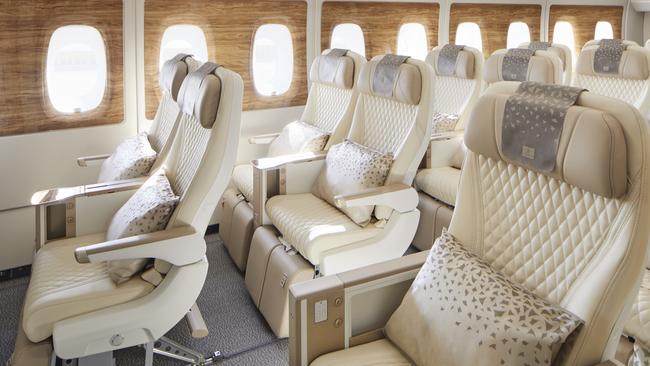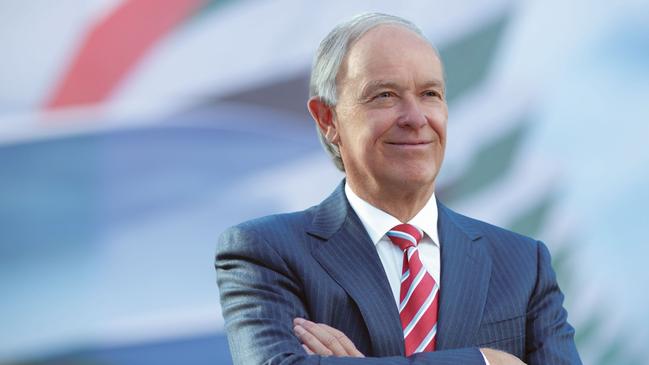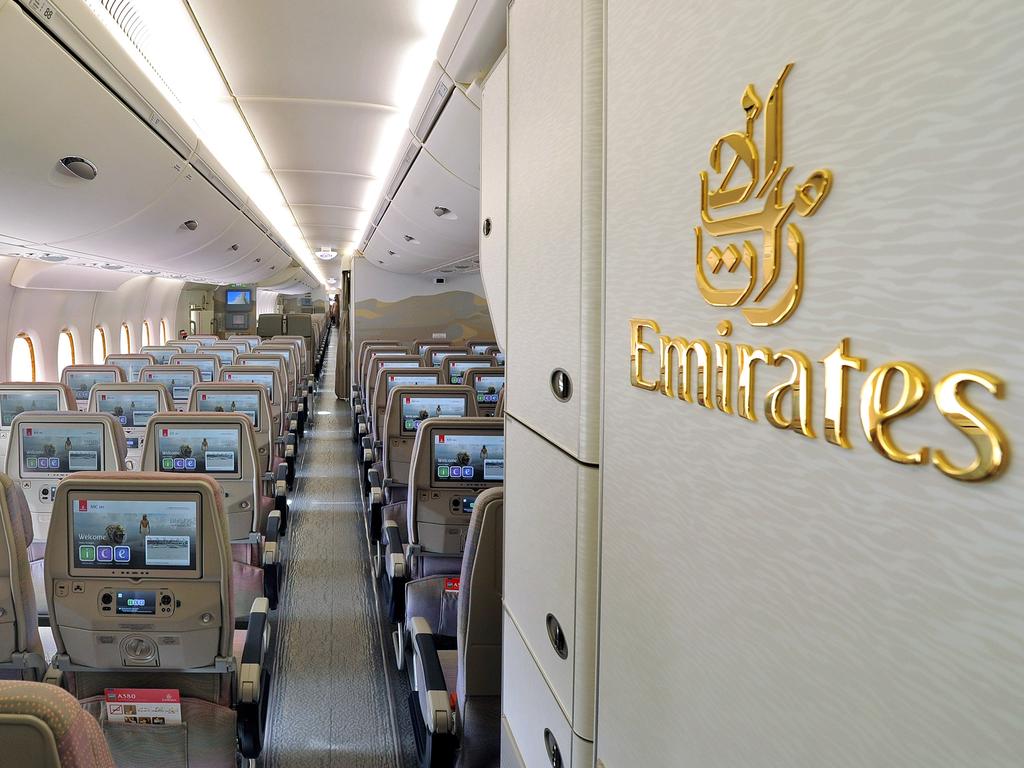Expensive is paying a lot for a product that doesn’t meet expectations, says Emirates boss
Emirates hasn’t put its airfares on sale since 2017 and has no plan to, as demand for travel shows no sign of cooling.
Business
Don't miss out on the headlines from Business. Followed categories will be added to My News.
Qantas’ partner, Emirates, has defended its high-priced airfares and expensive carrier charges on reward seats, saying passengers are happy to pay for quality.
Despite fierce competition from airlines such as Qatar Airways, Etihad and Singapore Airlines on Australian routes, Emirates boasts it hasn’t put fares on sale since 2017, and has no plan to do so.
Speaking at the Australian Open on Sunday, Emirates Australasian manager Barry Brown likened the airline to luxury brand Hermes, saying people were prepared to pay for top quality.
“Expensive is paying a lot for a product that doesn’t meet expectations,” Mr Brown said.
Emirates president Sir Tim Clark said the airline continued to experience strong demand for premium cabins, to the extent whereby it could sell every seat “three times over”.
He said it was not unusual for people to arrive at the airport and want a first class seat, which made it difficult to put any aside for upgrades.
In fact demand was so strong, Emirates was yet to include premium economy seats in its reward inventory, which Sir Tim said was not about to change.
“Eventually we will relent and we’ll inventory control it, but it is so popular with the segments of travel that we carry at the moment, it would be a difficult one,” he said.
“It’s not looking good for redemption.”

On the subject of carrier charges, Sir Tim conceded “we’re more expensive than others” and that frequent flyers had to pay about $4000 on top of more than 300,000 points for business class reward seats between Australia and London.
He said that as yet the add-on costs were not deterring anyone, or compromising the Qantas frequent flyer program.
“Carrier-imposed charges cover a multitude of extra costs that we face, which really are part of the deal when you fly on these kind of redemption tickets,” he said.
“And after all, if you can go on an A380 from Sydney to Vienna, all the way through or Amsterdam et cetera, with all the wonders of that lovely business class, it’s a fantastic product. And all right, you’ve earned it but I don’t know how many loyalty schemes are as generous.

“Once you redeem, you get the full monty and that does come with a cost, so we’ve got to be a little bit wary.”
Although there were some signs elsewhere that the post-Covid “revenge travel” era was nearing an end, Emirates was not convinced the appetite for travel, and particularly premium travel, was waning.
Sir Tim said it could even be argued that global uncertainty inspired people to travel, based on the growth in passenger numbers in the past year.
“Whether it be the effect of politics, environmentalism, insurrection, conflicts in Ukraine, Israel, Gaza whatever it may be, it kind of unnerves people a little bit,” he said.
“They seem to be thinking, ‘well let’s just go on a holiday, let’s travel’ because people are getting on aeroplanes like they have never done before.”

In order to meet the demand for new destinations and experiences, Emirates regularly updated its network, adding Madagascar in the Indian Ocean, and Bogota in Colombia.
Sir Tim said both destinations had been a success, and other airlines were now looking to follow.
“Our flight between Miami and Bogota is completely full; it’s the only first-class product in Colombia. I think Qatar now is going to fly in there directly, but hey, that happens,” he said.
“We’re the ones expanding the horizons, we make it easy for people to get to these places.”
More Coverage
Originally published as Expensive is paying a lot for a product that doesn’t meet expectations, says Emirates boss





